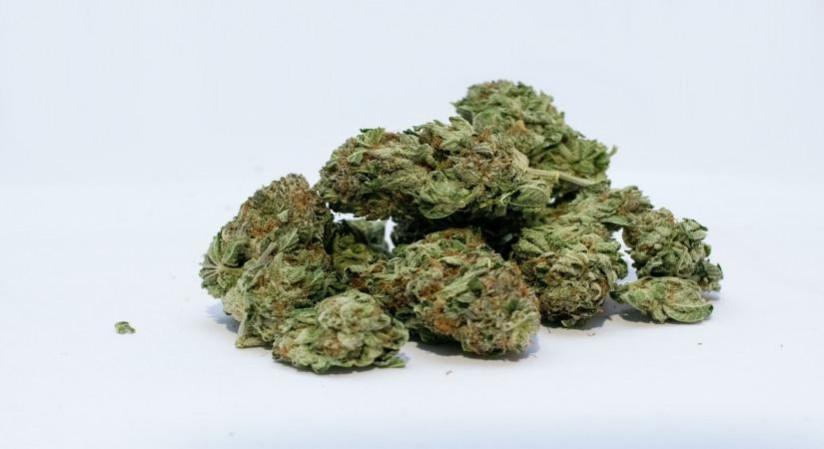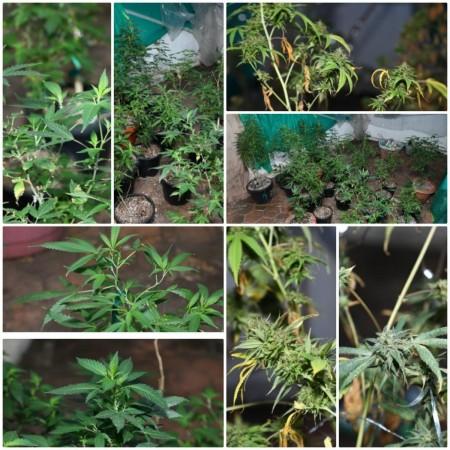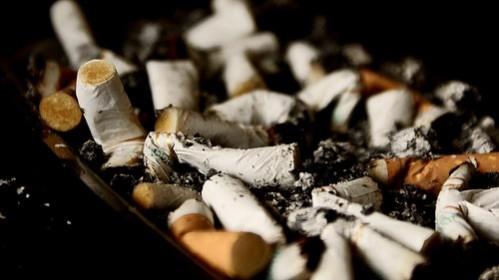
Drug traffickers are increasingly using air routes to smuggle high-potency hybrid cannabis, commonly known as hydroponic ganja, from Thailand into India. During the first five months of 2025, over 373 kilograms of hydroponic ganja were seized, leading to the registration of 56 cases and the arrest of 77 traffickers.
In response to a question in Parliament on whether the government is aware of the growing smuggling and distribution of high-potency hybrid cannabis across various parts of the country, Minister of State for Home Affairs, Nityanand Rai, acknowledged that air routes have emerged as the primary channels for this illicit activity.
"There have been incidents where international couriers and parcels containing hydroponic ganja were booked from Thailand and subsequently seized by Drug Law Enforcement Agencies (DLEAs) in India," the Minister said.
He further stated that the Government of India has raised this issue with Thai authorities, highlighting the concern during a bilateral meeting held from May 27 to 29, 2025, in Bangkok. The modus operandi involves human carriers traveling on flights from Thailand, as well as courier parcels being used to smuggle the contraband.

To combat the menace, the government has taken several measures, including:
- Establishing a four-tier Narco-Coordination Centre (NCORD) mechanism to enhance coordination between Central and State DLEAs,
- Formation of a dedicated Anti-Narcotics Task Force (ANTF) in every state,
- Setting up a Joint Coordination Committee, chaired by the Director General of the Narcotics Control Bureau (NCB), to monitor major seizure cases,
- Coordinated operations involving the Navy, Coast Guard, Border Security Force, State ANTFs, and other agencies,
- Capacity-building initiatives for DLEAs, and
- Launch of the MANAS helpline (1933) for drug-related information and complaints.
Nearly 4 Crore Illicit Cigarettes Seized in Ongoing Crackdown
In a parallel crackdown on the illicit tobacco trade, authorities have seized nearly 4 crore smuggled cigarettes over the last six months of the current financial year.
Responding to a query in Parliament regarding the alarming growth of the illegal tobacco market, Union Minister of Commerce and Industry, Jitin Prasada, informed that Customs Field Formations and the Directorate of Revenue Intelligence (DRI) had seized approximately 3.93 crore cigarette sticks between April and June 2025.

Additionally, the Central Goods and Services Tax (CGST) zones and the Directorate General of GST Intelligence (DGGI) detected 61 cases of tax evasion involving gutkha, chewing tobacco, cigarettes, and pan masala, with total evasion amounting to around ₹104.38 crore in the same period.
To tighten controls on illicit manufacturing and distribution, the government has introduced a special compliance mechanism for manufacturers of tobacco and related products. This includes:
Mandatory registration of each manufacturing machine
Monthly production reporting
Submission of technical validation certificates for machinery
This system enables real-time monitoring of production capacity and machine operations, thereby helping authorities trace and prevent illicit manufacturing.
The Finance Act 2025 has amended the CGST Act, empowering the government to establish a comprehensive track-and-trace mechanism for specified goods. It also introduces dedicated penalties for violations of these provisions to ensure strict compliance.
India, as a party to the World Health Organization Framework Convention on Tobacco Control (WHO FCTC) and a signatory to the Protocol to Eliminate Illicit Trade in Tobacco Products (Article 15), is actively aligning with global standards.
The Ministry of Health and Family Welfare, in coordination with the Department of Revenue, is working to implement a Track and Trace Mechanism for tobacco products in accordance with Article 8 of the FCTC Protocol. This initiative aims to reduce the accessibility of illegal tobacco products, which undermine both public health and tax revenues.















